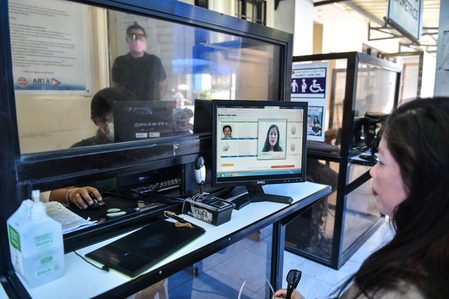SUMMARY
This is AI generated summarization, which may have errors. For context, always refer to the full article.
![[New School] Is voting enough?](https://www.rappler.com/tachyon/2021/08/imho-is-voting-enough-1280.jpg)
New School features opinion pieces by young writers, highlighting youth issues and perspectives.
Many Filipinos have expressed feelings of defeat with, and alienation from, the electoral system. Despite the regular conduct of free elections, the problems of poverty, underdevelopment, and systemic corruption have remained. This negligible progress in the development of our country has led the masses to lose faith in the elections. The act of voting has become, to such voters, a futile attempt to change a system that is inherently flawed and designed to serve the interests of particular groups.
So is voting really enough?
To answer this question, let us elaborate on two basics: agency and structure. Why do Filipinos keep on voting for candidates that are clearly self-interested and corrupt, despite knowing that they are detrimental to the country and, ultimately, themselves?
First, it is imperative to define agency. In the social sciences, agency refers to the capacity of an individual to make decisions without the undue influence of external forces. In relation to this, the act of voting is a quintessential example of how citizens of a state practice their agency. As rational human beings, citizens are expected to choose leaders that will uphold their best interests. Elections in democratic countries like the Philippines allow individuals to freely choose politicians they deem fit for public office.
Under this rationale, we would expect that since voters have the agency to select public officials, they would vote for those with exemplary credentials in public service and refrain from those with tainted track records. However, this notion of voter agency can be easily debunked by the predominance of elected public officials who are blatantly corrupt and inept. Despite consciously knowing that these politicians are self-serving, a Filipino voter with agency can still vote for the least qualified candidate. Are they merely irrational and willing to compromise the common good on purpose?
To understand agency, it is important to contextualize it within the concept of structure. Social scientists define structure as a stable arrangement of norms and institutions in which individuals regularly interact with one another. It both emerges from and determines individual human action. Contrary to agency, structure acts as a constraint on how individuals choose to behave.
In the Philippine context, people usually neglect the role of structure in voting behavior and place excessive precedence on agency. People erroneously blame the average Filipino voter for being gullible and stupid for electing incapable politicians. Why can’t they simply choose the best option, when they possess the agency to morally assess candidates?
Contrary to this myopic approach to voting, uncovering the inconspicuous structures in Philippine society will allow us to determine the restrictions on the agency of Filipino voters. Structures such as patron-clientelism, bossism and warlordism, and elite democracy affect Filipino voters.
For one, due to the severe economic recession during the pandemic, the poor Filipino voter is likely to resort to patronage in order to make ends meet. Politicians exploit the economic subordination of voters. For another, the Philippines is known to have one of the most violent and tumultuous elections in the world. Voters, especially in the rural areas, are terrorized by local warlords and bosses into voting for them. This norm of lawlessness and intimidation forces voters to relinquish their agency in order to survive. Finally, there is an illusion of “choice” in the roster of candidates. Elite clans and families predominate elections while actively marginalizing their rivals. How can Filipino voters exercise agency when they have to choose from the same set of corrupt politicians?
Now that we have elaborated on these structures: is voting enough?
The answer is no. Voting is insufficient to rattle the status quo. In spite of that, that doesn’t mean we should abandon the 2022 presidential elections. It is just one of the many ways of forwarding change in society.
How do we catalyze change aside from voting? Two things are necessary: legislation and a vigorous civil society. First, we must enact laws that will curb the presence of injust structures in society. Ensure economic development to curb patron-clientelistic relationships, reinforce existing laws to protect voters from local elites, and pass legislation such as the Anti-Dynasty Bill to stifle the grasp of elite clans and families on public office.
However, laws are not adequate to ensure these changes. A vibrant civil society is needed to produce competent leaders with integrity and different social cleavages that can articulate the interest of the masses. Civil society ensures that the government upholds the common good.
So no, voting is not enough. The 2022 presidential elections will not assure us of change, so we must do a multitude of things: join protests, talk about politics with friends and family, mobilize the grassroots, form alliances, and a lot more. – Rappler.com
Jomer Malonosan is a Political Science student at the University of the Philippines Visayas. They are a non-binary scholar who advocates for crashing the cis-tem.
Voices is Rappler’s home for opinions from readers of all backgrounds, persuasions, and ages; analyses from advocacy leaders and subject matter experts; and reflections and editorials from Rappler staff.
You may submit pieces for review to opinion@rappler.com.
Add a comment
How does this make you feel?

![[OPINION] Term limits and the rise of the Duterte dynasty](https://www.rappler.com/tachyon/2021/04/Term-limits.jpg?fit=449%2C449)
![[WATCH] In The Public Square with John Nery: Preloaded elections?](https://www.rappler.com/tachyon/2023/04/In-the-Public-Square-LS-SQ.jpg?resize=257%2C257&crop=414px%2C0px%2C1080px%2C1080px)
![[Newspoint] 19 million reasons](https://www.rappler.com/tachyon/2022/12/Newspoint-19-million-reasons-December-31-2022.jpg?resize=257%2C257&crop=181px%2C0px%2C900px%2C900px)

![[OPINION] The long revolution: Voices from the ground](https://www.rappler.com/tachyon/2022/06/Long-revolution-June-30-2022.jpg?resize=257%2C257&crop=239px%2C0px%2C720px%2C720px)
![[OPINION] I was called a ‘terrorist supporter’ while observing the Philippine elections](https://www.rappler.com/tachyon/2022/06/RT-poster-blurred.jpeg?resize=257%2C257&crop_strategy=attention)
![[Newspoint] Improbable vote](https://www.rappler.com/tachyon/2023/03/Newspoint-improbable-vote-March-24-2023.jpg?resize=257%2C257&crop=339px%2C0px%2C720px%2C720px)



There are no comments yet. Add your comment to start the conversation.